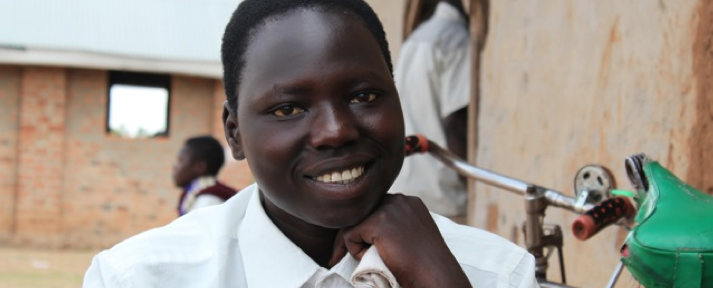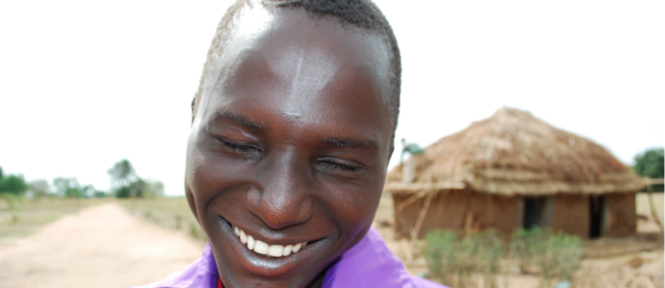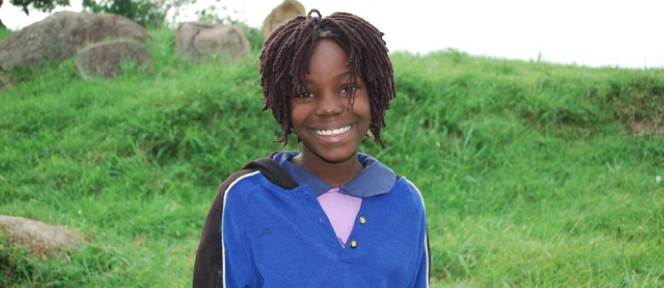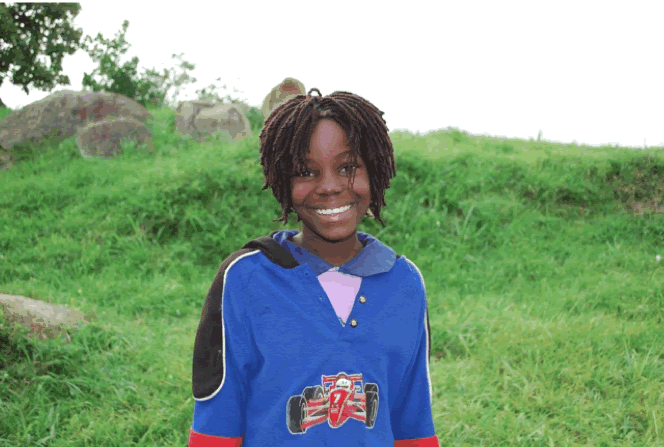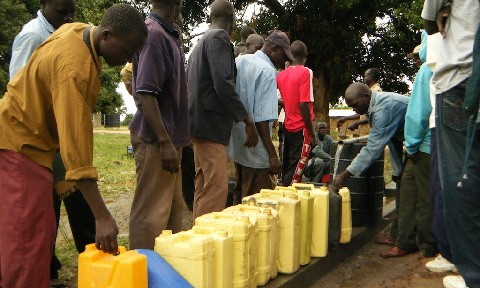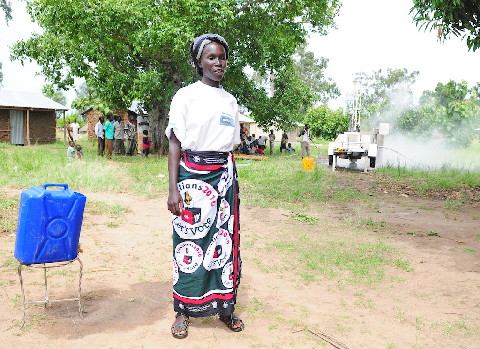Drop in the Bucket has been working at the Alela Modern Primary School since 2009. We drilled at well in 2009 and a year later we went back and built toilets.
It was at this school that we met a girl named Charity Atem. Charity was 16 years old at the time of this article.
Charity loved school and her test scores were excellent. Despite her grades, her parents decided they could no longer afford school fees for both Charity and her brother, so they decided to just pay for there brother. Their logic was they wanted Charity to get married so they could get a dowry. To them paying for her education would be a waste of money is she was to become a wife soon. Charity was devastated when they told her and pleaded with them to let her stay in school.
The bright 16 year-old was upset and frustrated by the fact that almost her entire community, thought it was wasteful to spend money on educating girls. The consensus seemed to be that girls will stop working once they have children, so educating boys has to be the priority. But as we have seen over and over again in the developing world, educating girls is the most effective way of moving communities out of poverty.
According to data collected by UNICEF educated women are more productive at home and better paid in the workplace, and more able to participate in social, economic and political decision-making. Also educated girls are likely to marry later and have fewer children, who in turn will be more likely to survive and be better nourished and educated.
A recent UNICEF report points out that educating girls dramatically reduces the chances of their children dying before the age of five.
Christopher Elem, the head-teacher at Alela Modern decided that losing a student of Charity’s ability and potential was unacceptable, so he went to her parents and threatened to take them to court if they denied their daughter the right to an education. Fortunately they relented and Charity was able to stay in school.
For Charity things are going well. Because of her head-teacher’s intervention, her parents allowed her to return to class and she recently passed the national exams. She’s headed to high school next term and hopefully a bright future. With education everything is possible for these children.

